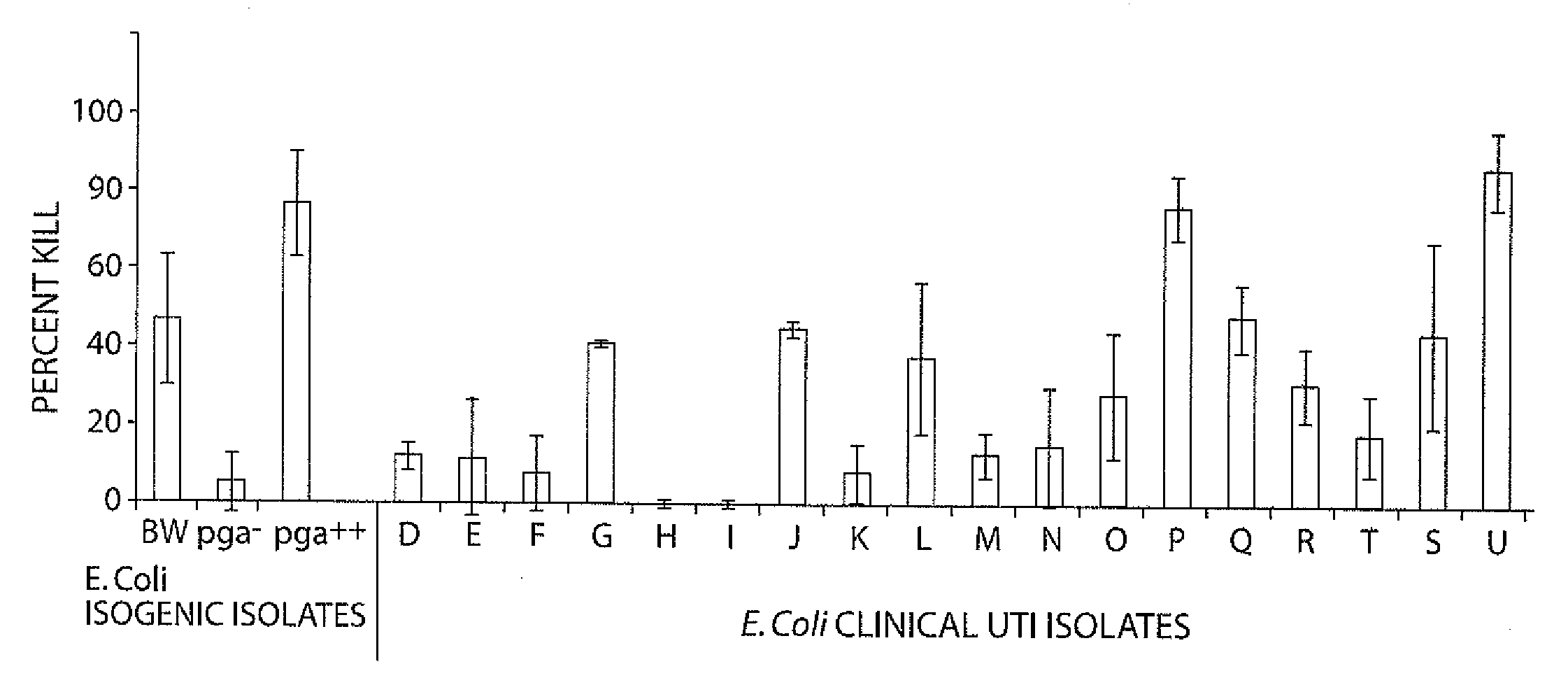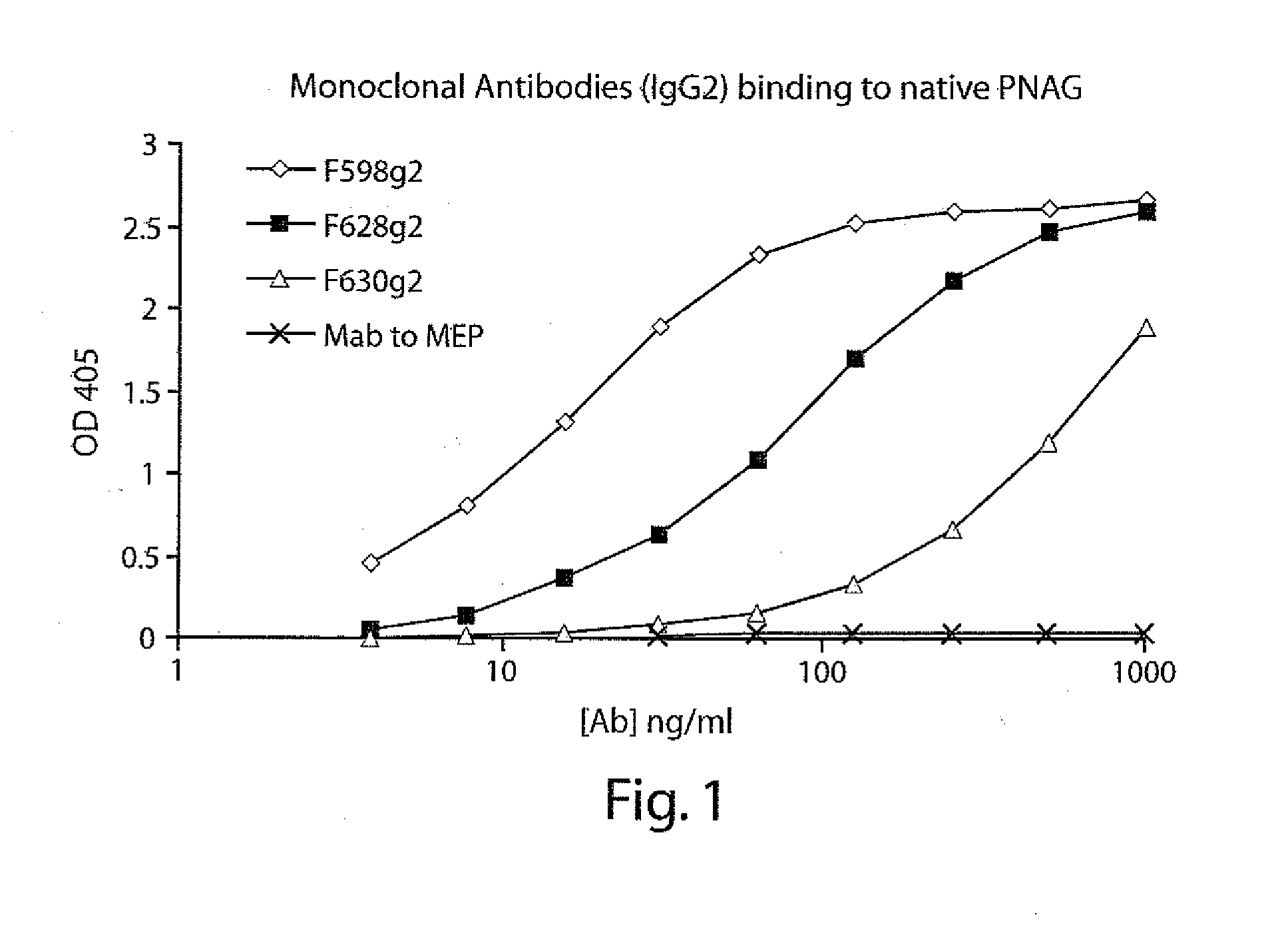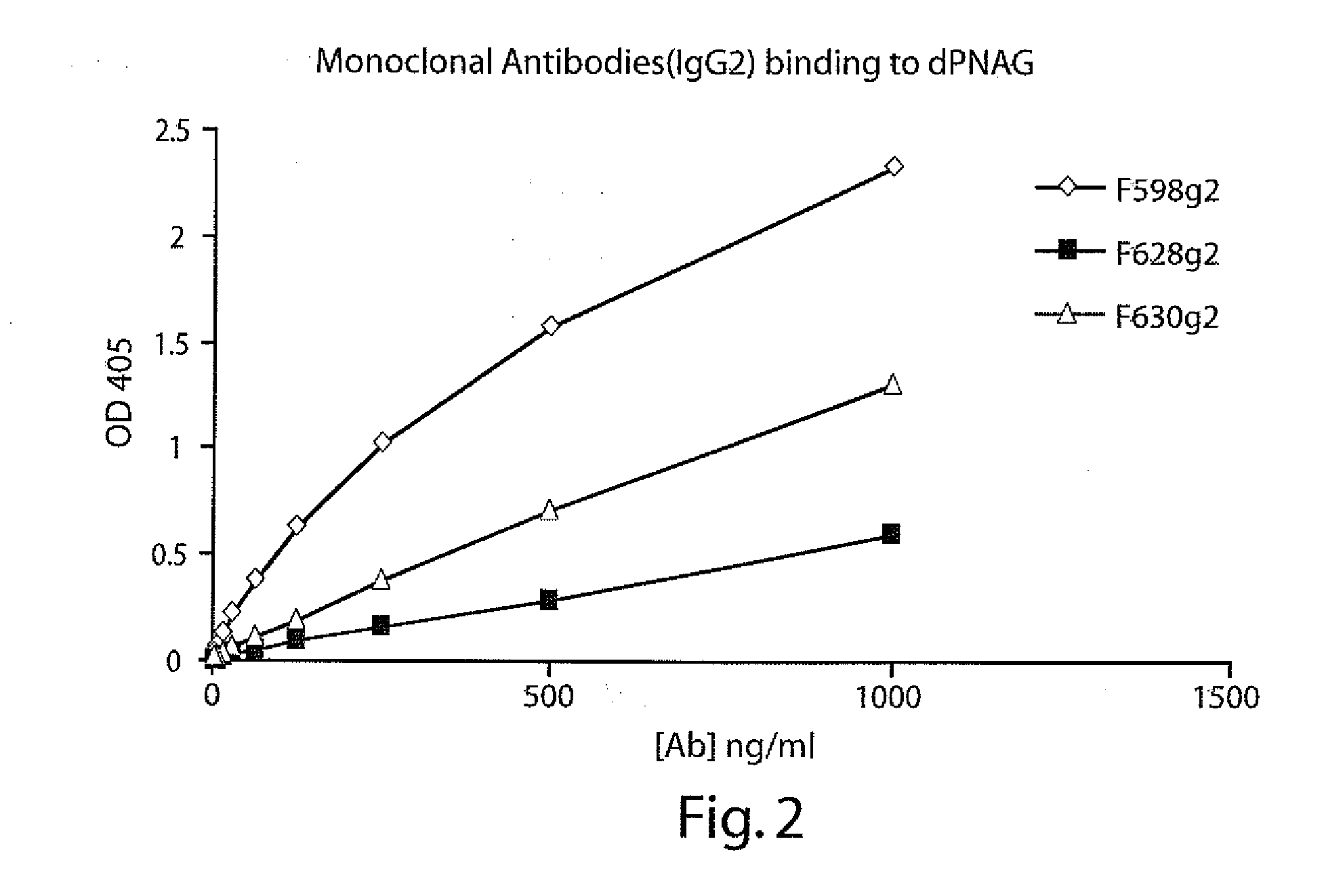POLY-N-ACETYL GLUCOSAMINE (PNAG/dPNAG)-BINDING PEPTIDES AND METHODS OF USE THEREOF
a technology of polyn-acetyl glucosamine and peptides, applied in the field of peptides, can solve the problems of loss of milk production, infection to develop, and common problem of staphylococcal mastitis, and achieve the effect of reducing the load of bacteria in the subj
- Summary
- Abstract
- Description
- Claims
- Application Information
AI Technical Summary
Benefits of technology
Problems solved by technology
Method used
Image
Examples
examples
[0251]S. aureus and S. epidermidis are associated with a wide range of hospital and community acquired infections. The rise of antibiotic resistance drives the development of new therapies to treat and prevent these infections. Adhesion of the bacteria to host tissues or to implanted prosthetic devices is often important for a successful Staphylococcal infection. One such adhesion molecule expressed on the surface of Staphylococci in vivo and found to be a target of protective antibodies is poly-N acetyl-glucosamine (PNAG). This adhesion molecule is expressed and employed by other bacteria such as but not limited to E. coli.
Experimental Procedures
Hybridomas:
[0252]Blood was collected from patients after the onset of S. aureus infection and peripheral blood mononuclear cells (PBMC) were isolated from the blood samples using Ficoll Hypaque sedimentation. B cells were stimulated by overnight exposure to Epstein-Barr virus (EBV) produced from the B95.8 cell line as described by Posner e...
PUM
 Login to View More
Login to View More Abstract
Description
Claims
Application Information
 Login to View More
Login to View More - R&D
- Intellectual Property
- Life Sciences
- Materials
- Tech Scout
- Unparalleled Data Quality
- Higher Quality Content
- 60% Fewer Hallucinations
Browse by: Latest US Patents, China's latest patents, Technical Efficacy Thesaurus, Application Domain, Technology Topic, Popular Technical Reports.
© 2025 PatSnap. All rights reserved.Legal|Privacy policy|Modern Slavery Act Transparency Statement|Sitemap|About US| Contact US: help@patsnap.com



